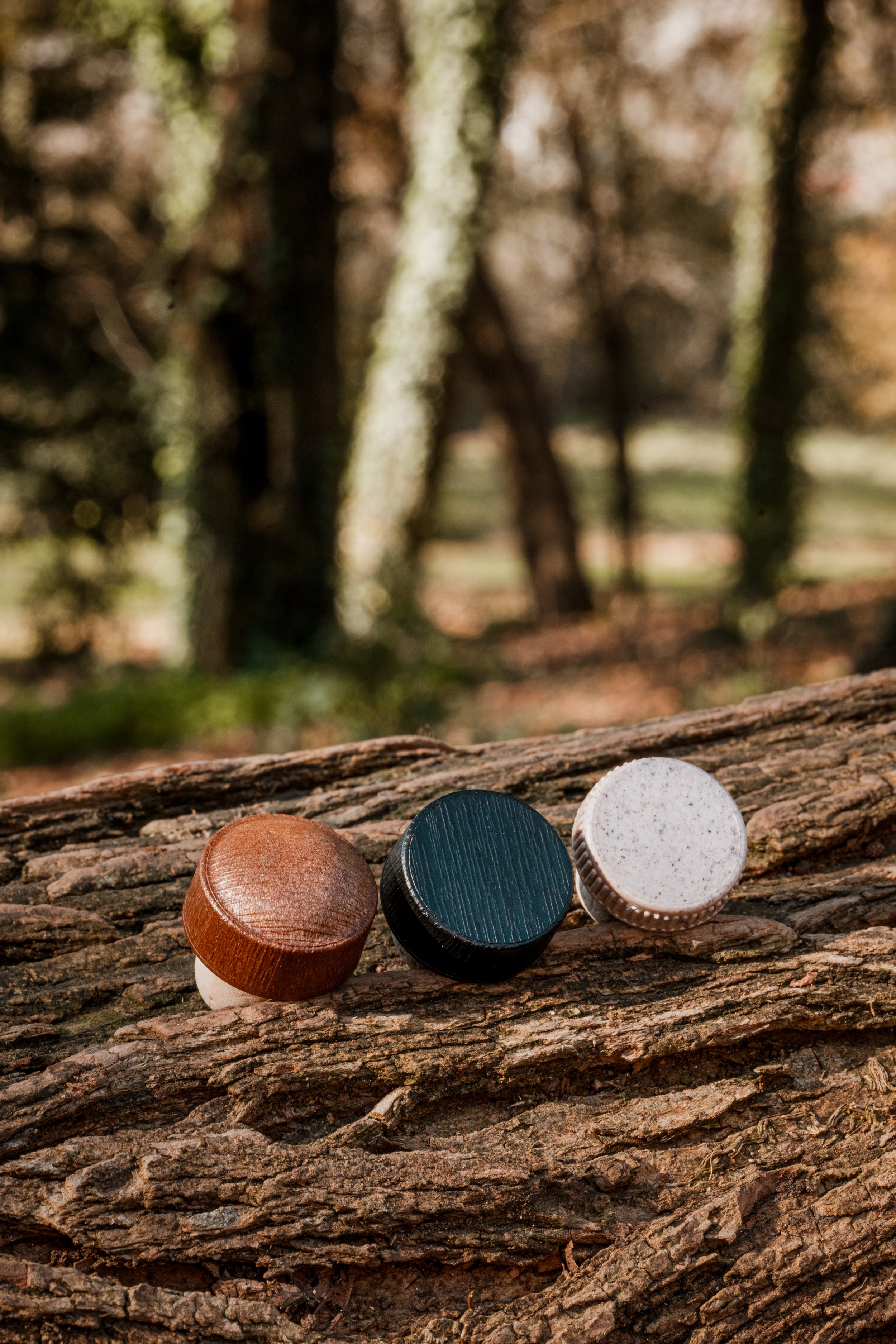
About Us
LAFITTE’S
History
The Lafitte family shares a long history with the cork industry. Founded in 1918, the initial backdrop to this tale is Toulouse, France, where the first factory was established. In the late 50s, Lafitte Cork moved its headquarters to Portugal: home of 34% of the cork forests in the world.
This allowed for extraordinary raw materials control and, as a result, unmatched quality.
In 2020, Lafitte expanded by acquiring RCP International, which specialized in manufacturing capsulated cork stoppers, also known as t-top stoppers or bar-top stoppers.
Thus, Lafitte Bartop was born.
Lafitte Bartop has been working on setting new standards for premium, high performance t-top closures. Dedicated specifically to cork stoppers for luxury spirits, high-end olive oil and vinegar, Lafitte Bartop employs the technical expertise and ingenuity the company has accumulated in over 100 years in business to supply the perfect bar top closure.

Sustainability.
Through its use of cork, Lafitte Bartop is inherently connected to the preservation of species and the environment as a whole.
Lafitte Bartop follows all the Lafitte Group's sustainability policies, also working side by side with suppliers in order to promote more sustainable practices in our supply chain and to continuously improve the management of all resources.
The use of cork contributes to a better product and a better planet.
Where does cork come from?
All cork used to produce our stoppers and capsules comes from The Montado.
Montado is the name given to the Mediterranean cork oak forests. In Portugal alone, these forests take over 700 thousand acres of land.
These forests also happen to be one of the wealthiest ecosystems in the world: it’s one of 36 biodiversity hotspots on the planet, on a par with Amazon and Borneo. It is home to over 24 species of reptiles, 160 species of birds and 37 species of mammals - among which is the most threatened feline in the world: the Iberian Lynx.
The cork oak.
The cork oak presents a voluminous bark formed by an impermeable, elastic tissue with thermal insulating properties - the cork. It has green foliage all year round, can reach up to 15 meters in height and it usually lives for about 200 years.
Throughout its life, this special tree allows for the extraction of cork between 15 and 18 times.
The stripping process is in no way harmful to the cork oak: the tree is not cut in order to remove the cork.
Unlike most trees, the cork oak can survive without its bark, regenerating it when it is removed. Therefore, the bark of the tree - the cork - can be removed simply by nicking the bark and stripping it from the tree. The cork is then able to renew itself and, after 9 years, it grows back fully. In fact, cork oak trees can only be cut down if they are dead or diseased, and even then, only with the written permission of the authorities.
Conscious that the Montados represent the future of the forest for generations to come, Lafitte has given priority to the safest techniques in removing cork, in order to avoid damage to the cork oak and to minimize the environmental impact.
Cork:
Nature’s holy grail.
100% Natural
100% Sustainable
100% Environmentally Friendly
Cork is undoubtedly the most eco-efficient material for a stopper.
100% natural, the cork stopper is also reusable, recyclable and environmentally friendly, as each cork stopper is responsible for the retention of around 309g of CO2.
Nothing is wasted along the production process: all waste of cork resulting from manufacturing natural cork stoppers is captured and reused to produce other materials, such as agglomerated stoppers.
Even after its primary use - sealing bottles - has come to an end, the cork can be ground up and re-entered into the production process.

THE IMPORTANCE OF PRESERVING
The Montado.
For the planet.
The cork oak forests are absolutely central to the environment, not only because of their plentiful biodiversity, but also because they play a very important role in the hydrological cycle, water quality, soil conservation, oxygen production and, consequently, in the retention of a large amount of CO2 - approximately 14 million tons per year.
For the People.
Mainly located in the south of Portugal, the cork oak forests are also crucial to the country's economy. Portugal is responsible for about 50% of cork production worldwide, making it the world’s largest cork manufacturer. The cork sector directly employs over 8000 people and contributes about 3% of GDP.
In addition to playing an active role at a financial level, the sector is also fundamental at the local and regional level, since the cork industry makes it possible to maintain the employment of a large number of people, thus preventing desertification.

Quality.
The satisfaction of our clients is essential to us. This is why we work to ensure our cork stoppers are absolutely impeccable.
PerfectGO.
PerfectGO is a technology developed by the Lafitte Group that allows for the individual testing of natural cork stoppers. This technology measures the TCA level of each stopper, even below detection limit, in a non-invasive way, and segregates any tainted cork, ensuring our clients that they are receiving 100% TCA-free cork stoppers.
MaxClean Evolution.
MaxClean Evolution is a two-phase sterilization and deodorization system, developed by Lafitte, to guarantee all cork stoppers are free of any aromas and TCA. This is done through the use of pressure, dry steam, temperature, and, last but not least, time.
LD21.
LD21 has been developed and manufactured by Lafitte specifically to verify the tightness of natural cork stoppers. This technology makes it possible to discard the stoppers that do not comply with the sealing values established by the client.
Individual Molding.
The cork bodies of our micro agglomerated cork stoppers are produced by injecting a mixture of cork granulate and natural binders in individual molds.
Once inside the molds, the mixture is compressed and submitted to extreme temperatures - both hot and cold - to solidify its final shape.
The individual molding of our cork stopper guarantees a stable, visually appealing and structurally homogeneous product.









